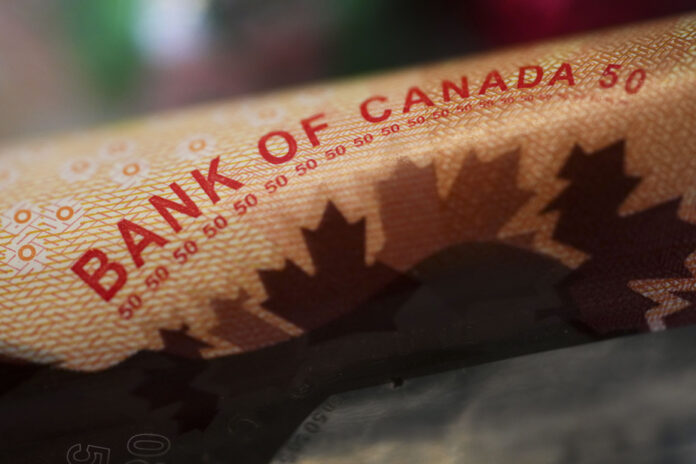(OTTAWA) The momentum taken by the Canadian economy has economists wondering if the Bank of Canada will raise its key rate again, even if it is not expected to do so this week.
The central bank will announce its decision on Wednesday. This week, new data indicated that the Canadian economy was still growing, even though interest rates were the highest they had been since 2007.
Statistics Canada calculated that the Canadian economy grew at an annualized rate of 3.1% in the first quarter. The latest data shows that growth exceeded Statistics Canada’s own forecast of 2.5% for the quarter.
Preliminary estimates from the federal agency suggest the economy continued to grow in April. Even the real estate market, the first to suffer the consequences of the increase in interest rates, seems to have regained strength.
Economists argue that the current growth puts the Bank of Canada in a difficult position. The central bank has often argued that reining in the economy was necessary to bring inflation down to 2%, the target. However, the economic downturn has yet to become a reality.
“The question arises: how well did the Bank of Canada anticipate this new data that goes against the notion of an economic downturn? said James Orlando, Director of Economics at TD Bank.
According to him, the data suggests a return to growth, not a slowdown, in particular because of consumer spending which increased during the first quarter.
Canadian economic growth is at odds with last year’s forecast that rising interest rates would push the country into a recession. And economists are wondering if the Bank of Canada will raise its key rate in July.
Desjardins chief economist Jimmy Jean also believes that the Bank of Canada could wait until the summer before raising its key rate. This would give the central bank time to properly assess inflationary pressures.
“We’re going to narrowly escape it, but I think she’ll want to collect more data,” he said.
Earlier this year, the Bank of Canada announced a pause in its trend of raising its key interest rate, a cycle that began in March 2022. Governor Tiff Macklem explained that this pause would allow the central bank to properly assess the effects of increases on the economy.
The members of the board of directors have already discussed a possible increase during their last meeting, in April. According to the summary of deliberations, “the resilience of economic growth” may have prompted the Bank to raise its policy rate.
In the end, the board of directors chose to continue the break. However, Mr. Macklem warned the public that the Bank of Canada would tend to raise its key rate, rather than lower it.
The Bank of Canada is particularly concerned about the strength of the job market in Canada. In April, the unemployment rate remained at 5% for the fifth month in a row. This is 0.1 percentage point from the record 4.9% reached last summer.
In April, salaries were 5.2% higher than a year ago, even exceeding the increase in the cost of living. For the Bank of Canada, low unemployment and the current pace of wage increases are hampering its efforts to fight inflation.
The inflation rate was 4.4%. The downward movement that began last summer is expected to continue. Mr. Jean believes that inflation remains a concern. According to him, the data indicates that Canada is not yet out of the woods.
“When you look at the whole picture about core inflation, you can be sure it’s not something the Bank of Canada is comfortable with. »















